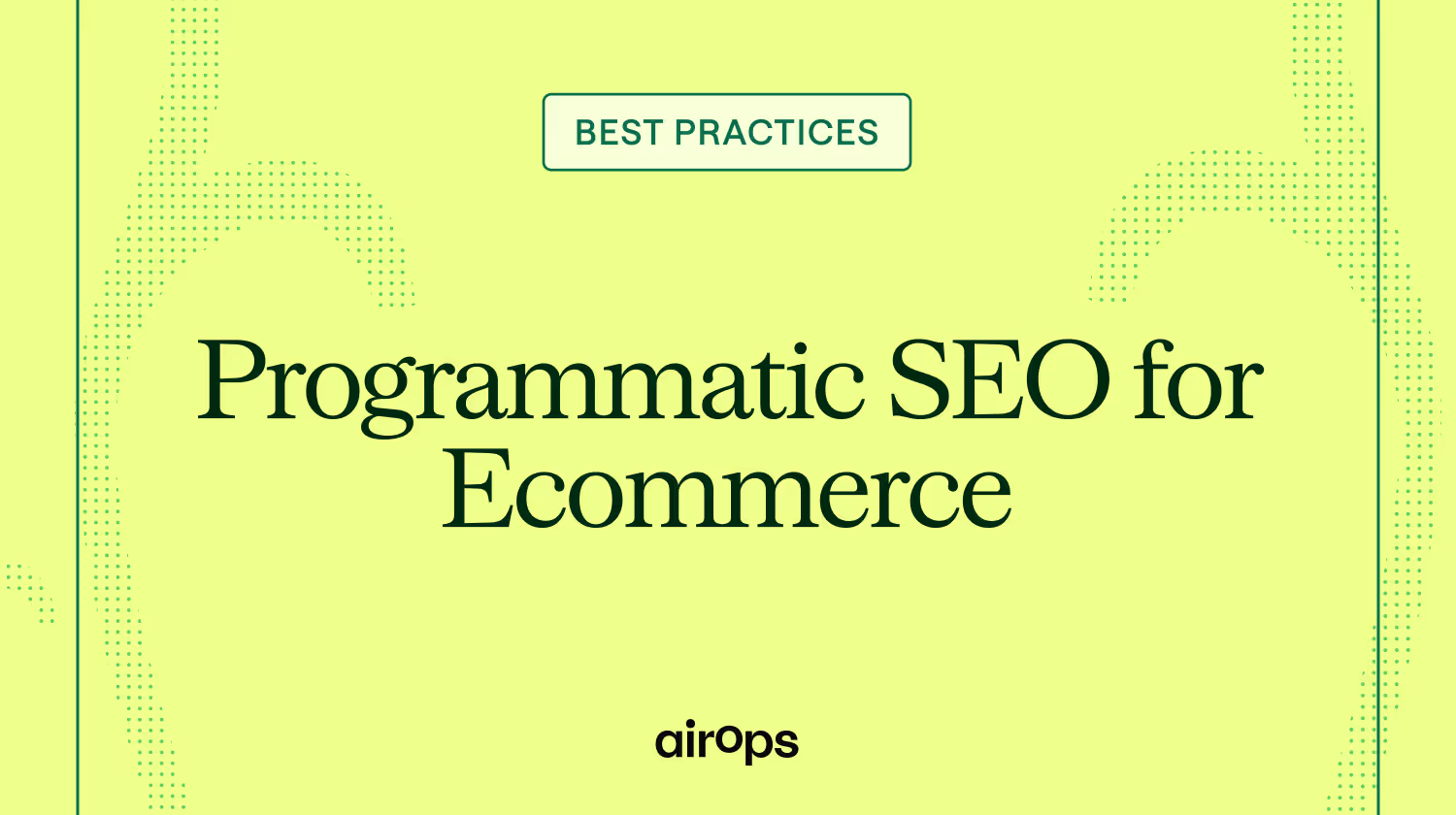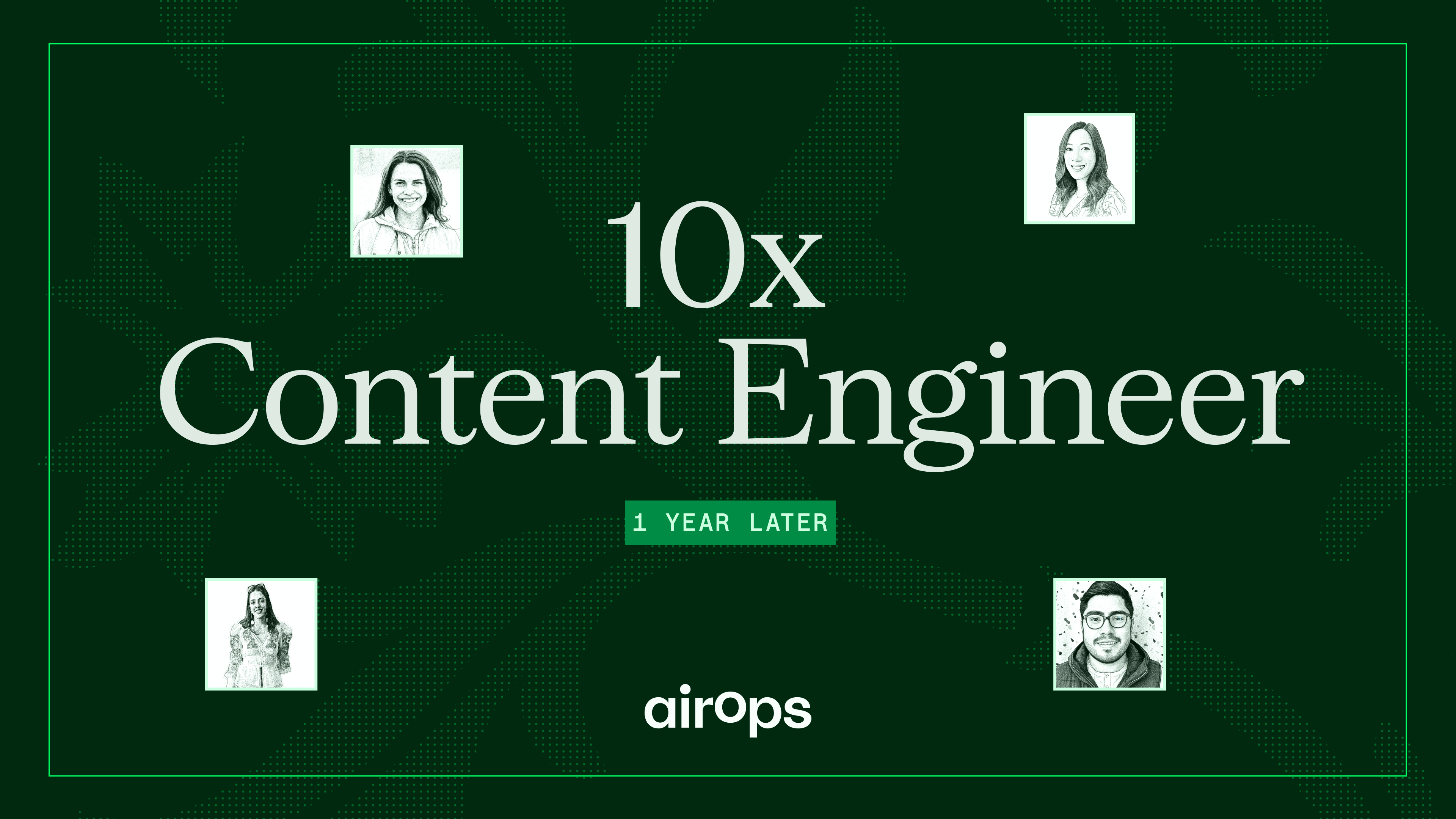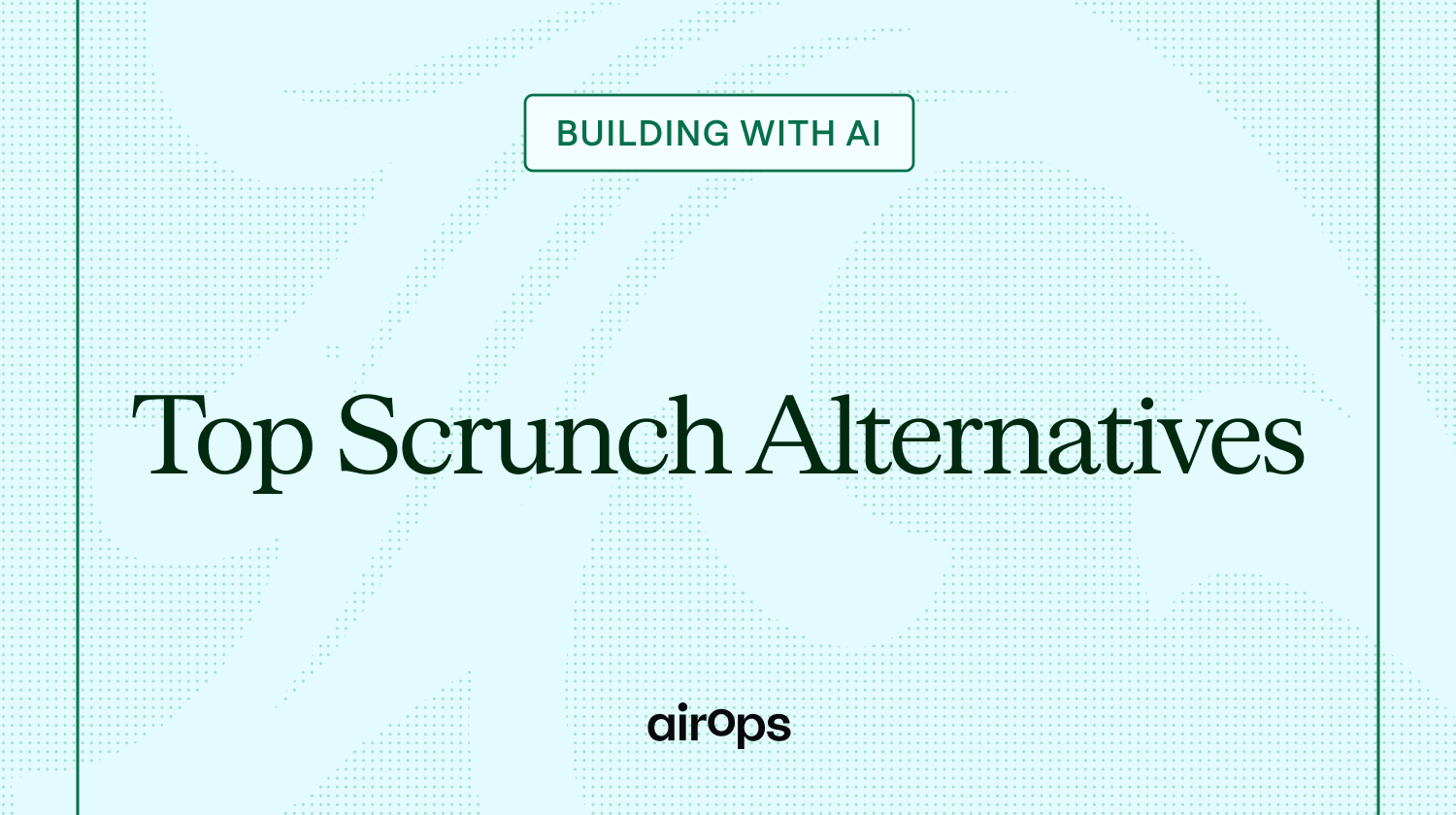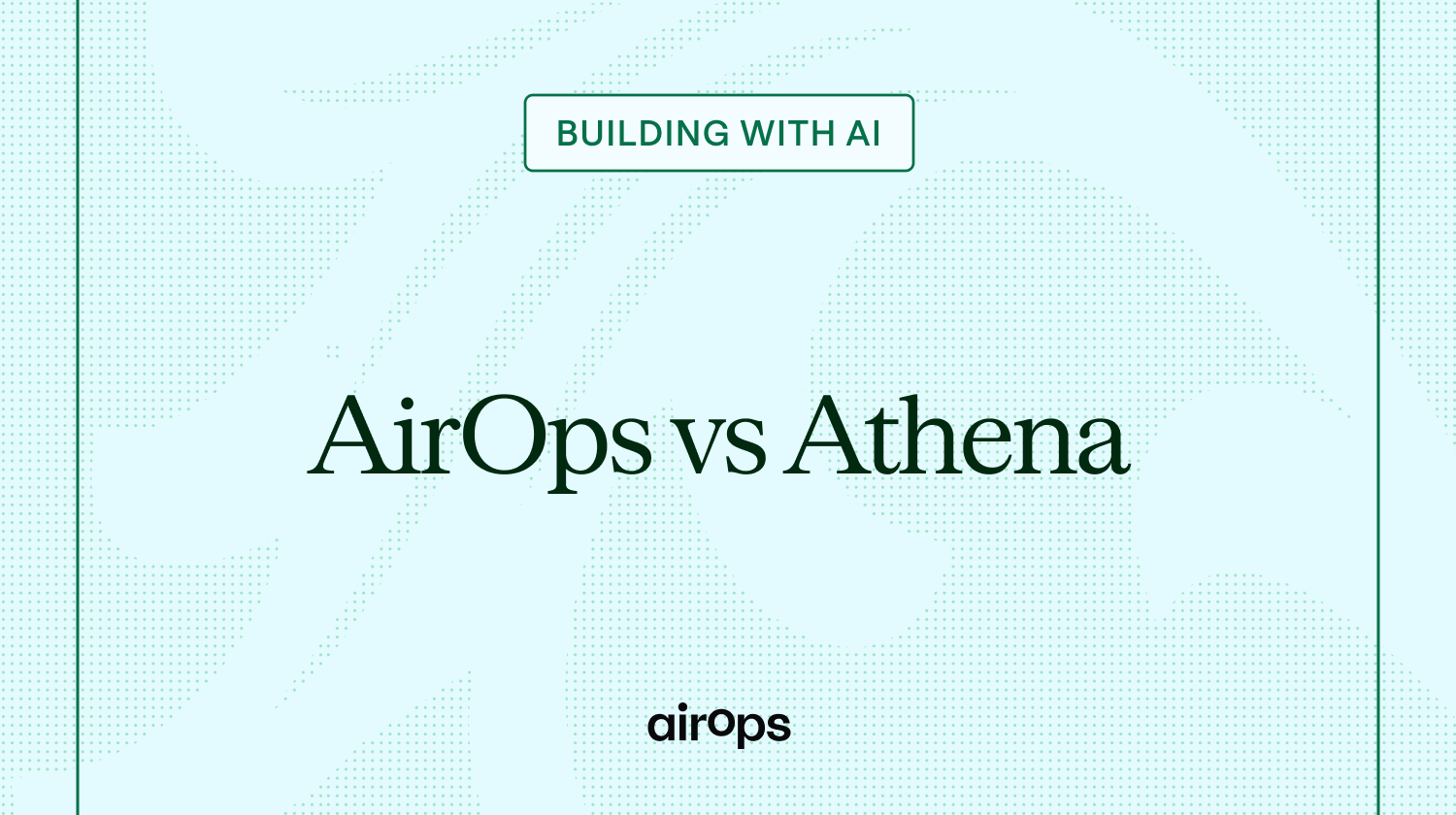Programmatic SEO for Ecommerce: How to Scale Your Store with pSEO in 2026

Programmatic SEO (pSEO) automates the creation of SEO-optimized pages using structured data and templates.
Ecommerce brands can use pSEO to scale landing pages for products, features, collections, and more.
In this article, you’ll learn how ecommerce brands can apply programmatic SEO across key page types, follow best practices, and scale content creation efficiently using structured data and automation.
Programmatic SEO (pSEO) empowers ecommerce brands to rapidly scale content creation by leveraging automation and structured data. This approach allows you to surface your products for a wide array of long-tail search queries—precisely the kind that attract high-intent buyers.
When using pSEO for ecommerce, you can efficiently generate product, category, and landing pages at scale, ensuring each one remains relevant and SEO-optimized without the heavy lift of manual production.
According to Shopify’s Enterprise Ecommerce SEO Guide, programmatic strategies are especially valuable for large catalogs and marketplaces, and help businesses reach a wide range of search intents efficiently while reducing the need for manual content production.
What Is Programmatic SEO for Ecommerce?
Programmatic SEO for ecommerce is a scalable approach that leverages automation and structured product data to generate large volumes of SEO-optimized pages—quickly and efficiently.
By targeting long-tail keywords and automating content creation, ecommerce brands can capture a wider range of search intents without manually building every page.
The key to success lies in pairing automation with clean, structured data—ensuring each page is relevant, indexable, and valuable to both users and search engines.
How Does Programmatic SEO and Ecommerce Work?
Programmatic SEO works by integrating structured data with templated page designs and automation tools. For ecommerce, this usually means:
- Pulling data from your product catalog or CMS
- Using rules to map keyword modifiers (e.g., color, brand, size) to specific queries
- Automatically generating pages with dynamic content tailored to those search intents
- Publishing and updating content via CMS integrations or APIs
How to Use Programmatic SEO for Ecommerce
Programmatic SEO can be applied across multiple ecommerce page types, each aligned with a specific search intent. These page types are ideal for automation, allowing you to generate targeted, SEO-optimized content at scale while addressing different stages of the buyer journey.
Product Pages
Product pages showcase individual items and variants, optimizing for highly specific searches:
- Auto-generate pages for every SKU variant (e.g., "red waterproof running shoes size 11").
- Integrate structured data (pricing, availability, reviews).
- Optimize long-tail keywords with high conversion potential.
Feature Pages
Feature pages highlight specific product attributes or benefits, grouping relevant products:
- Automatically aggregate products by features (e.g., "wireless noise-canceling headphones").
- Target high-intent, attribute-driven queries.
- Enable dynamic updates as products evolve.
Collection Pages
Collection pages group products into categories, tags, or filtered lists:
- Organize products programmatically based on shared attributes.
- Enhance internal linking and navigational experience.
- Automatically update as inventory changes.
Seasonal Pages
Seasonal pages address temporary demand around events or promotions:
- Rapidly generate pages like "Back-to-School Sales."
- Quickly adapt to trends and promotional periods.
- Efficiently retire outdated content.
Location Pages
Location pages target local search intent for multi-region ecommerce businesses:
- Localize product content, offers, and inventory.
- Boost visibility for geo-targeted keywords (e.g., "running shoes in Austin, TX").
- Easily scale new location-based content.
Specialized Pages for Ecommerce
Create additional page types to enhance SEO and user experience:
- Comparison Pages: Auto-generate product comparisons ("Nike vs. Adidas running shoes").
- Listicles: Automated roundups ("Top 10 Running Shoes for Flat Feet").
- Support Docs: FAQ, guides, and instructions based on common queries.
You can use tools like ContentGecko to produce these pages at scale, while maintaining accuracy and your brand style.
Best Practices for using Programmatic SEO for Ecommerce
Follow these best practices to ensure your pSEO strategy is effective and sustainable:
- Use Clean, Structured Data: Quality data drives quality pages. Use consistent formatting, naming conventions, and schema markup.
- Prioritize Search Intent: Match page types and keywords to actual user needs—transactional, navigational, or informational.
- Avoid Thin or Duplicate Content: Add unique value, CTAs, and useful internal links to differentiate each page.
- Monitor Performance and Iterate: Track rankings, CTRs, and conversions. Use A/B tests to refine templates and content rules.
- Integrate With Your Tech Stack: Use platforms like AirOps to automate workflows and push updates to your CMS at scale.
- Anticipate and Mitigate Risks: Be proactive about avoiding potential risks of pSEO like index bloat, duplicate content, and low-value pages.
Does Programmatic SEO Work for Every Industry?
pSEO excels in industries with structured, repeatable data—such as ecommerce, travel, real estate, and SaaS—but is less suited for content requiring significant editorial creativity.
Scaling Your Ecommerce SEO with Programmatic SEO
Programmatic SEO is a powerful lever for ecommerce brands looking to scale content without sacrificing SEO performance. By turning your structured data into high-quality, search-optimized pages, you can capture more traffic, improve site structure, and drive conversions—at scale.
Scale Your Ecommerce Strategy with AirOps
AirOps helps ecommerce teams operationalize programmatic SEO with AI-powered workflows and structured data automation. Rather than manually building each page, AirOps enables you to:
- Automatically generate large volumes of SEO-optimized pages from your product catalog or structured datasets
- Connect structured data to reusable templates for consistent, scalable content
- Integrate directly with your CMS to publish and update pages efficiently
- Track SEO performance and refresh content automatically to maintain rankings
Whether you’re launching thousands of product pages or optimizing seasonal landing pages, AirOps gives your team the infrastructure to execute programmatic SEO at scale—without sacrificing quality or control.
Ready to build a scalable ecommerce strategy? Book a strategy session to learn how AirOps can help you scale your growth with programmatic SEO.
Win AI Search.
Increase brand visibility across AI search and Google with the only platform taking you from insights to action.
Get the latest on AI content & marketing
Get the latest in growth and AI workflows delivered to your inbox each week
.avif)




